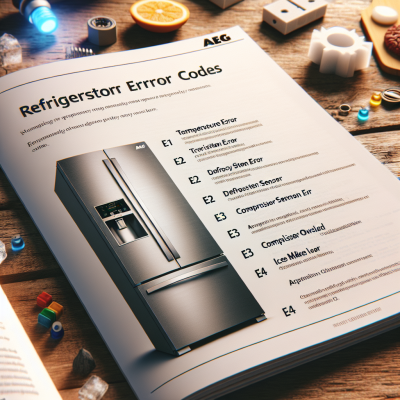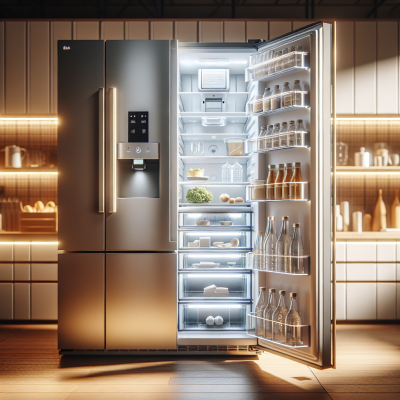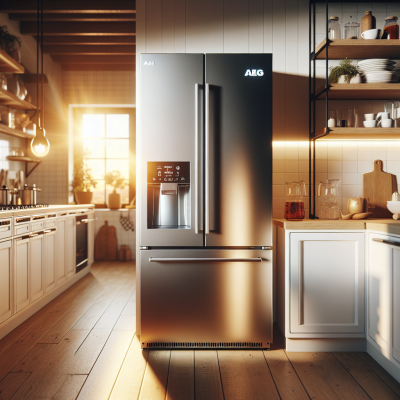Fast & Reliable Bosch Refrigerator Repairs - Call Now! |
Troubleshooting
Refrigerator Not Cooling
When your Bosch refrigerator is not cooling effectively, several factors could be contributing to the issue. Begin by inspecting the appliance’s power supply. Ensure the refrigerator is securely plugged in and the circuit breaker has not tripped. Check the thermostat setting to make certain it is not set too high. If the refrigerator still isn’t cooling, examine the condenser coils located at the back. Dust and debris accumulated on these coils can hinder cooling efficiency. Clean them thoroughly using a vacuum cleaner or a coil brush. Additionally, verify that the door seals are intact and forming a complete seal to prevent cold air from escaping. If these steps do not resolve the problem, it may be necessary to consult a professional technician as the issue could be related to the compressor or evaporator fan malfunction.
Ice Maker Not Working
A non-functional ice maker can result from multiple potential issues. First, ensure that the ice maker is turned on and the unit is receiving power. Double-check that the water supply line is connected properly and providing adequate water flow. If the line is functional but the ice maker still isn’t operating, there might be a clog in the water inlet valve or a fault in the ice maker mechanism. In some cases, resetting the ice maker can resolve minor glitches. Consult the user manual for specific reset procedures. If none of these actions restore functionality, replacing the ice maker module or contacting a service technician might be necessary.
Water Dispenser Issues
If the water dispenser on your Bosch refrigerator is dispensing water slowly or not at all, start by confirming that the water supply valve is fully open and the water line is not kinked or blocked. Inspect the water filter as a clogged filter is a common culprit. Replace the filter if it is due or appears clogged with sediment. Air trapped in the water line can also cause issues, so bleed the line by dispensing water until a steady stream is achieved. In cases where these steps do not resolve the issue, the problem could lie with the dispenser control panel or water inlet valve, which may require professional service.
Unusual Noises
Unusual noises from your refrigerator can be unsettling and may indicate a problem. Common causes include the compressor kick-starting, the fan motor, or the defrost timer engaging. Examine the unit's level to ensure it is evenly balanced, as unbalanced placement can intensify normal operational noises. Check that none of the interior items are rattling against each other or the walls of the refrigerator. If the noise persists and seems excessive or irregular, there might be an issue with the mechanical components such as the fan motors or compressor, which may require professional attention.
Frost Buildup in Freezer
Frost buildup in the freezer can impair efficiency and lead to spoilage of stored food. Begin by checking the door seal for any gaps or damage that could allow humid air to enter and condense inside. Adjust or replace seals as needed. Verify that the defrost system is functioning; a malfunction here can lead to ice accumulation. Manual defrosting might be necessary to remove excessive frost, which is done by turning off the appliance and allowing the ice to melt naturally. If frost buildup is a recurring issue, consider having a technician examine the defrost heater, thermostat, or timer.
Lighting Problems
If the light inside your refrigerator is not working, first ensure that the bulb is not burnt out. Replace it with a new one that matches the specific requirements of your Bosch model. Check the switch that activates the light when the door is opened and inspect for any physical damage or obstructions. Verify that the bulb is securely screwed into the socket. If these measures do not solve the problem, there may be an issue with the refrigerator’s electrical components, and professional assistance could be required.
Door Seal Issues
Door seals or gaskets in poor condition can compromise the cooling efficiency of your refrigerator. Visually inspect the seals for cracks, tears, or hardness that prevent a snug fit. Clean the gaskets with warm, soapy water to remove any accumulated dirt or residue that might be affecting the seal. If cleaning does not restore functionality, replacing the door seals may be necessary to ensure optimal cooling performance. New seals can be ordered through Bosch authorized parts suppliers.
Power Supply Problems
When your refrigerator is not operating at all, the power supply is the first suspect. Ensure the appliance is properly plugged in and check whether the outlet is functioning correctly by testing another device. If you experience frequent power outages or surges, investing in a surge protector can prevent future problems. Inspect the circuit breaker to see if it has tripped and reset it if needed. Should the refrigerator continue to have power issues despite these checks, consult an electrician to investigate potential wiring faults in your home’s electrical system.




